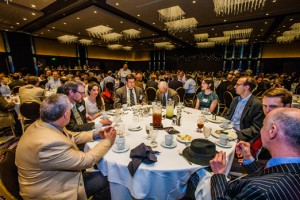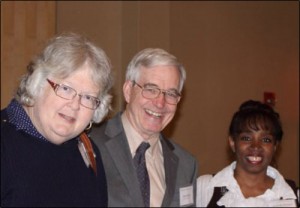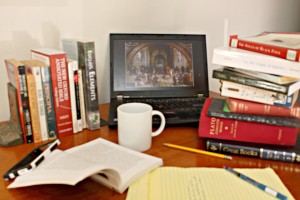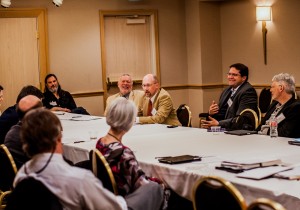The Association for Core Texts and Courses supports individuals, provides fora, and develops initiatives that advance and strengthen the integrated and common study of world classics and texts of major cultural significance. ACTC welcomes faculty and administrators dedicated to building sound liberal education.
ACTC is an international, professional association that seeks to advance liberal education in institutions by developing and promoting successful general, liberal education programs (and other programs) which integrate core text courses with the most advanced developments in administration, curriculum, student support services, faculty support, and general education assessment and review.
Questions about ACTC conferences or activities? Call us at +1 972 265 5794 or write to us: info@coretexts.org
ACTC is delighted to introduce Teresita (Tess) Makanas, our new administrative assistant.
Tess joined ACTC in April. She combines a high degree of professionalism with extensive experience in executive administration and event planning.
Tess will reply promptly to phone messages and emails; her usual office hours are 12:00pm-5:00pm (Central Time), Monday through Friday.
Contact Tess at:
ACTC Liberal Arts Institute at the University of Dallas
1845 East Northgate Drive, Box 725
Irving, TX 75062
Phone: +1 972 265 5794
thvm2721@coretexts.org
Welcome, Tess.
The 2020 annual conference will be in Birmingham, AL, from April 16-19.

ACTC Conferences may be the most stimulating conference you attend all year – at least that is what repeat ed surveys of conference attendees tell us.
ed surveys of conference attendees tell us.
What makes ACTC conferences so intellectually satisfying? Perhaps it is because ACTC really is an interdisciplinary organization. Humanists, artists, social scientists, and scientists, sharing a common concern with excellent liberal education, meet together on panels to discuss ideas, texts, pedagogy, and administration of core text programs.
Or, maybe it is the texts and ideas that capture faculty and administrator interests. What are just a few of the authors or works that we have discussed in panel sessions in recent years? These include: Achebe, Aristotle, Aquinas, Augustine, Austen, the Bayeux Tapestry, Bhagavad Gita, Black Elk, Confucius, Douglass, Dylan, Ellison, Euclid, Dante, DuBois, Galileo, the Gospel of John, Homer, Jefferson, Lady Hyegyong, Lady Murasaki, Lao-Tse, Melville, Mencius, Mendel, Morrison, Mozart, Newton, Nietzsche, The Pentateuch, Picasso, Plato, Shakespeare, Sophocles, Thucydides, and Teresa of Avila, Watson and Crick, and Woolf.


